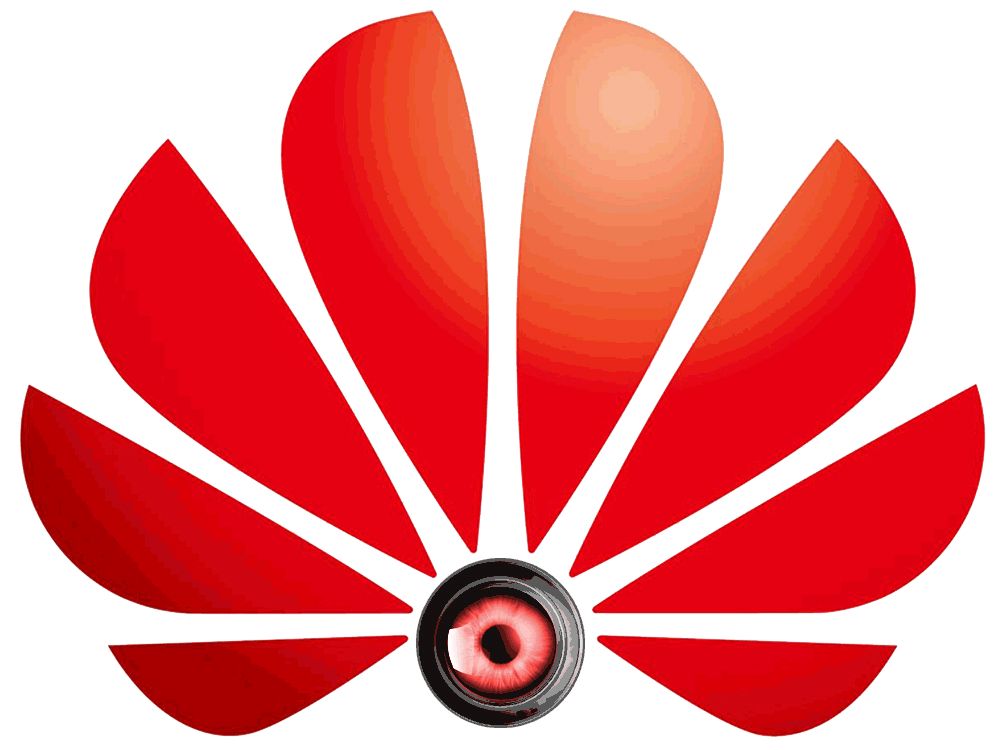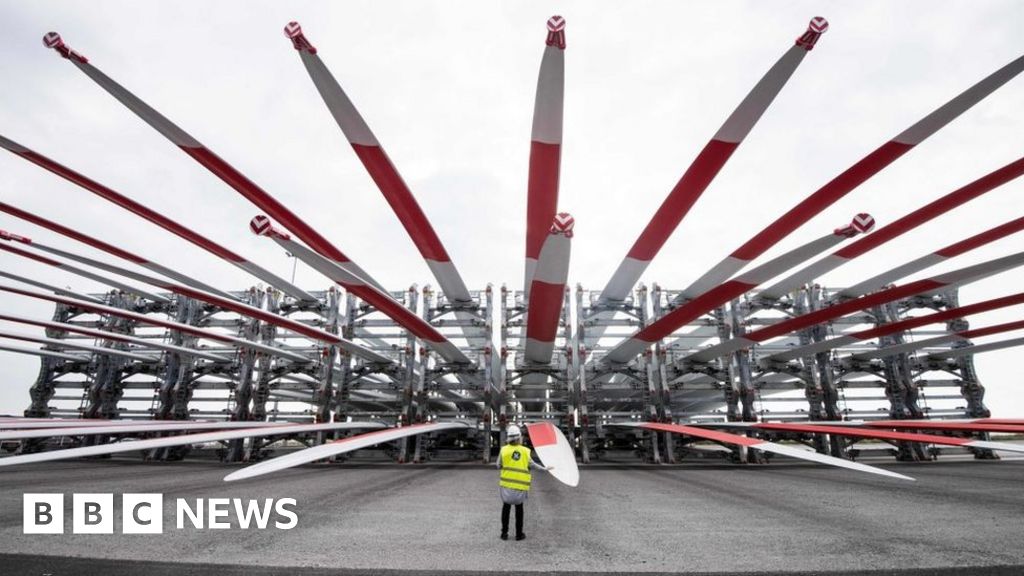
U.S. Chipmakers Fear They Are Ceding China’s A.I. Market to Huawei
New restrictions on semiconductor exports to China are scrambling sales and fueling concerns that the Chinese tech giant will become a chip-making powerhouse.
U.S. Chipmakers Fear They Are Ceding China’s A.I. Market to Huawei
New restrictions on semiconductor exports to China are scrambling sales and fueling concerns that the Chinese tech giant will become a chip-making powerhouse.

American chip companies worry Huawei could become a major rival for A.I. chips.Credit...Aly Song/Reuters
By Tripp Mickle
Tripp Mickle reports on the chip industry from San Francisco.
April 18, 2025
The semiconductor industry has lobbied two presidential administrations to go easy with restrictions on selling cutting-edge computer chips to China. Jensen Huang, the chief executive of Nvidia, the world’s leading artificial intelligence chip maker, even traveled to Mar-a-Lago this month to discuss policy with President Trump.
But with the Trump administration putting new curbs on A.I. chip sales this week, it is clear that the industry’s pushback has failed. The fallout has set off a scramble among chipmakers to reset expectations for a future with less sales to China and prompted fears that their retreat could turn the Chinese tech giant Huawei into a global chip-making powerhouse.
The Trump administration said on Tuesday that it was taking measures to restrict the sale of A.I. chips by Nvidia, Advanced Micro Devices and Intel. The crackdown essentially closed the door on a fast-growing business in China, which buys more chips than any other country.
In the two days after the limits became public, shares of Nvidia, the world’s leading A.I. chipmaker, fell 8.4 percent. AMD’s shares dropped 7.4 percent, and Intel’s were down 6.8 percent.
“For the U.S. semiconductor industry, China is gone,” said Handel Jones, a semiconductor consultant at International Business Strategies, which advises electronics companies. He projects that Chinese companies will have a majority share of chips in every major category in China by 2030.
The U.S. companies’ challenges are a reflection of how U.S.-Chinese tensions are reordering the global economy. For years, U.S. companies created and designed many of the world’s best-selling products, while relying on China to produce most of them and buy many of them.
But over the past decade, the balance shifted as China began to develop homegrown rivals and Mr. Trump began imposing tariffs. A.I. has heightened those tensions. The technology has the potential to create trillions of dollars in economic value and funnel tremendous power to the two countries vying for A.I. supremacy: the United States and China.
Computer chips are the building blocks of artificial intelligence. Nvidia, in particular, dominates the market for chips used to build A.I. systems. It was on the verge of becoming the first publicly traded company worth $4 trillion before a stock swoon over the past few months dropped its value below $2.5 trillion.
In 2022, the Biden administration started imposing rules to restrict China’s ability to buy Nvidia A.I. chips. The administration added more limits each subsequent year. Then, this week the Trump administration blocked the last A.I. chip that Nvidia was selling to China, the H20, saying it was in the government’s national and economic security interest.
Image

Nvidia’s Jensen Huang has lobbied the Trump administration on A.I. chip export controls.Credit...Mike Kai Chen for The New York Times
The timing couldn’t have been worse for Nvidia. Mr. Huang had a scheduled trip to China this week. He spent Thursday with Chinese leaders, stressing how important the country was to his business.
“We’re going to continue to make significant effort to optimize our products that are compliant within the regulations and continue to serve China’s market,” Mr. Huang said during a meeting with the China Council for the Promotion of International Trade.
Mr. Huang’s message spoke to one of his biggest fears. For years, he has worried that Huawei, China’s telecommunications giant, will become a major competitor in A.I. He has warned U.S. officials that blocking U.S. companies from competing in China would accelerate Huawei’s rise, said three people familiar with those meetings who spoke on the condition of anonymity.
If Huawei gains ground, Mr. Huang and others at Nvidia have painted a dark picture of a future where China will use the company’s chips to build A.I. data centers across the world for the Belt and Road Initiative, a strategic effort to increase Beijing’s influence by paying for infrastructure projects around the world, a person familiar with the company’s thinking said.
Huawei has entered and conquered other markets. Over the years, it has surpassed Ericsson and Nokia in telecommunications and took on Apple in smartphones.
But the company’s semiconductor business faces challenges. Washington has blocked China from making chips in Taiwan, which produces the world’s most powerful semiconductors. It also prevents Chinese companies from buying machines made by ASML, the Dutch company whose machines are essential for manufacturing the most advanced semiconductors.
Nvidia’s previous generation of chips perform about 40 percent better than Huawei’s best product, said Gregory C. Allen, who has written about Huawei in his role as director of the Wadhwani A.I. Center at the Center for Strategic and International Studies.
But that gap could dwindle if Huawei scoops up the business of its American rivals, Mr. Allen said. Nvidia was expected to make more than $16 billion in sales this year from the H20 in China before the restriction. Huawei could use that money to hire more experienced engineers and make higher-quality chips.
Mr. Allen said the U.S. government’s restrictions also could help Huawei bring on customers like DeepSeek, a leading Chinese A.I. start-up. Working with those companies could help Huawei improve the software it develops to control its chips. Those kinds of tools have been one of Nvidia’s strengths over the years.
Huawei didn’t immediately respond to requests for comment.
To prevent Huawei from gaining ground, said Dylan Patel, chief analyst for the research firm SemiAnalysis, who closely follows the rise of A.I. technologies, U.S. officials must prevent China from buying American chip-making equipment.
The U.S. government allows some Chinese companies to buy American machinery. Chinese companies have exploited that loophole, Mr. Patel said. His firm has reported that approved companies have bought equipment and transferred it to Chinese companies that have been blocked from buying it.
“Huawei is a ferocious competitor,” Mr. Allen said. “It brings a mixture of very high-quality talent, psychotically driven work culture and the deep backing of the Chinese government.”
Tripp Mickle reports on Apple and Silicon Valley for The Times and is based in San Francisco. His focus on Apple includes product launches, manufacturing issues and political challenges. He also writes about trends across the tech industry, including layoffs, generative A.I. and robot taxis.
A version of this article appears in print on April 19, 2025, Section B, Page 3 of the New York edition with the headline: U.S. Chipmakers Losing Lucrative Chinese Market. e







